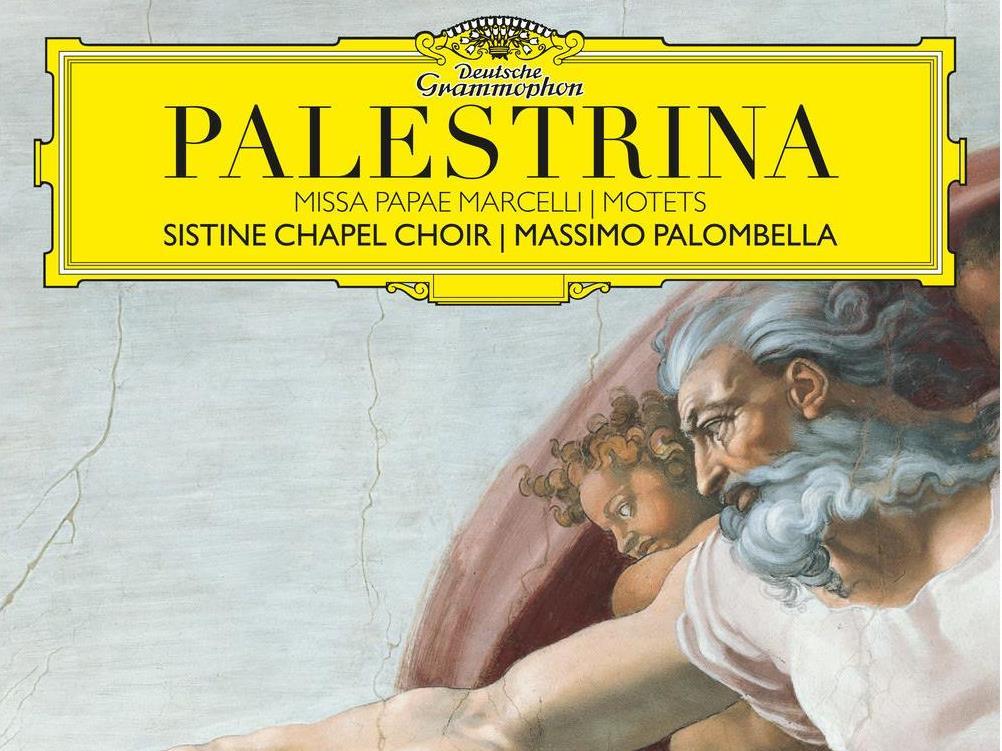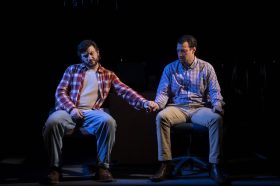Cover image: Palestrina Missa Papae Marcelli and Motets – Sistine Chapel Choir. Image via Deutsche Grammophon.
The second recording to come from Deutsche Grammophon’s association with the oldest choral institution in the world presents one of the great late-Renaissance jewels from the Vatican’s treasury, Palestrina’s Missa Papae Marcelli. This masterpiece dedicated to Pope Marcellus II who only reined for three weeks in 1555 was composed to honour one of the resolutions of the Council of Trent that the late pope held dear, that the text of polyphonic music be more understandable. Undertaken in February and April last year the recording takes place once again within the warmly resonant acoustic of the Sistine Chapel.
Afforded unrestricted access to the Vatican’s music archives, the Choir’s director Massimo Palombella presents a fresh edition based on three early sources including the first edition of 1567. It removes as many bar lines as possible so as to allow clarity and a natural flow of text; several accidentals are also removed (diatonic sharps and flats having crept into usage in the 19th and 20th centuries). The new edition is down a minor third from most and redistributes its six parts to boy trebles, tenors (high and low), baritones and basses. The entire sound and character of the work is therefore adjusted. Tactus or pulse is halved so the work moves along at a pace. The underlay of text is carefully reassigned. Perhaps the most controversial interpretive aspect of the recording is the more or less constant changing of tempo associated with the character of sections of text. It is a risk that Palombella celebrates in his annotations and it mostly pays off, arguably serving to delineate the text even further by the individual rhetorical treatment of each block of text. Soloists within the ensemble are assigned some sections. Something that I must admit to having trouble with though are the super slow cadences and final chords that disappear into a ‘hum’ that seems to cross the line into self-referential romanticism. Particularly fine is the setting of perhaps the most revered text in the Credo: Et incarnates est de Spiritu Sanctu ex Maria Virgine, et homo factus est. The 7-part Agnus Dei II is not sung (Palombello doubting its authenticity) with instead the first repeated with a change of text.
Interestingly, within the refined and reverberant acoustic of the Sistine Chapel the sound of the choir is often most delicate and very restrained. Nothing is loud. This is surprising given that the Mass is often associated with the triumphant Counter-Reformation, and performed in larger spaces using high pitch with twin tenor lines singing at the very peak of their range. A pleasing consequence is that the recording generally stays in tune though very close listening reveals subtle pitch adjustment from the Deutsche Grammophon technical team here and there.
The rest of the recording presents motets by Palestrina, two here recorded for the first time: Veritas mea et misericordia mea (Psalm 88:25) and Jubilate Deo (Psalm 22:2-5). The Choir moves from its recording position in front of the great Michelangelo altar wall fresco to the back of the Chapel for the final work Ave Maria with the top (Cantus) line taken by three falsettists: the enchanting results are rich and mellifluous. Let’s hope the next recording is not too far away.
Another fine recording from this most impressive vocal ensemble.
Highly recommended.
Rating: 4 stars out of 5
Palestrina Missa Papae Marcelli and Motets – Sistine Chapel Choir
Massimo Palombella, director
Deutsche Grammophon
479 6131





